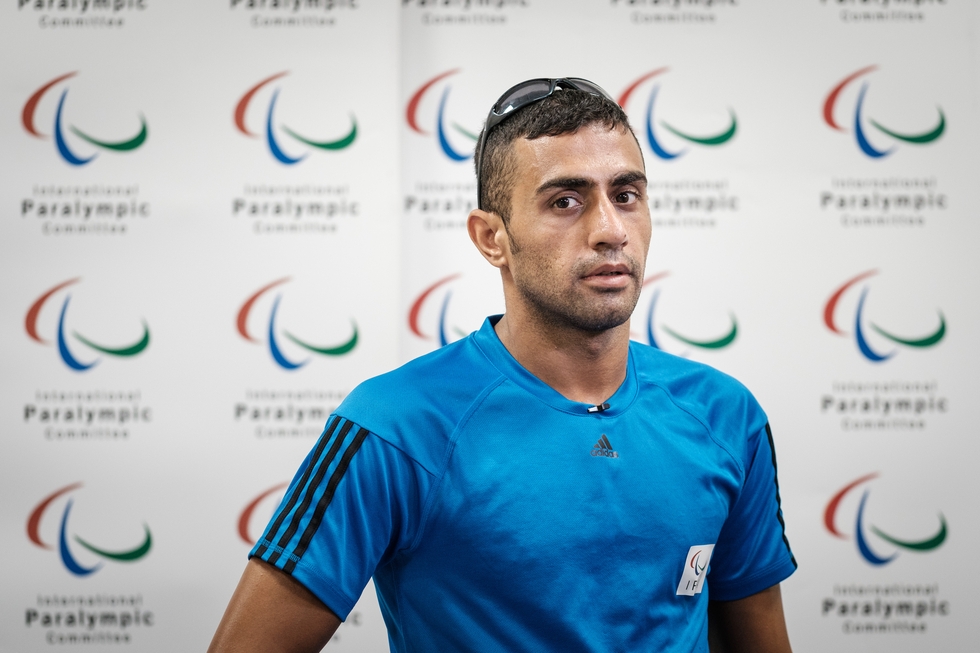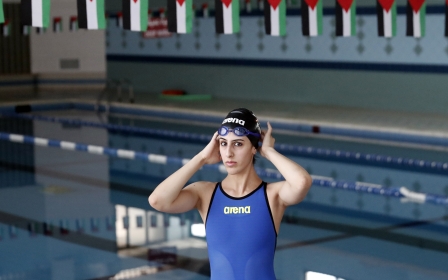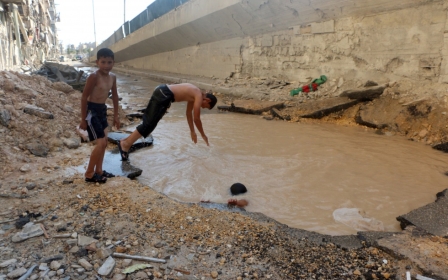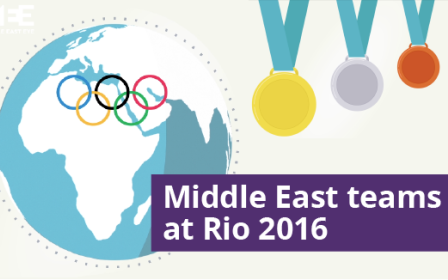Syrian amputee says Paralympics can be a 'real goal' for refugees

Ibrahim al-Hussein, who lost a leg in the Syrian war only to compete as a Paralympic swimmer four years later, has called for EU countries to do more to encourage the sports dreams of refugees.
Hussein and Iranian-born discus thrower Shahrad Nasajpour came to Rio de Janeiro to compete as the independent Paralympics refugee team.
Hussein came in seventh in the 100-metre freestyle, and finished in sixth place in the 50-metre freestyle on Tuesday.
For him, he says, just being in Brazil "was the reward, to be here. 2016 was my most beautiful year."
Hussein, a swimmer who carried the Olympic torch through Rio in the run-up to this year's games, lost his leg in 2012 after an explosion.
"I was trying to help a friend wounded in an attack and I was injured by another explosion," he says, adding that he prefers "to forget the past."
He got out and was treated, and eventually made it to Athens where he now works in a cafe and won selection to the refugee team.
He began swimming in the Euphrates river with his father when he was just five, and took up judo at 12. As a teen, he already had Olympic dreams.
"I never imagined my country would have a war one day," he told AFP.
"After the explosion I lost all hope of continuing sport, since one leg had to be amputated and the other was wounded. My only goal was to walk again."
In Greece, though, he achieved far more. He established a new life and returned to sport, swimming "for four hours every day after work," and also playing the fast and furious game of wheelchair basketball.
Homeland
In April, Hussein was chosen for the refugee team, which follows a similar gesture made for the first time for the Rio Olympics last month.
He calls for sport to be used to halt conflict and pleads "to stop the bloodbath in Syria."
With so many of Syria's athletes having fled the country, he says the European Union "should ease the procedures for athletes to join clubs so that they can keep training."
"There are many war wounded, people who have had amputations, like me. For the Palestinians, Iraqis and Syrians, the Paralympics are a real goal," he said.
When the "marvelous experience" of competing in Brazil ends he will return to his life in Athens and, he hopes, prepare for the Tokyo 2020 Games -- only this time representing his homeland.
"Let's be realistic. My country is lost at the moment. But I hope one day the bloodbath will end," he said.
"I don't want to go back to my country in the conditions that I left, on a wheelchair," he said.
How would he like to return?
"Swimming, crossing the Euphrates of my childhood," he said.
This article is available in French on Middle East Eye French edition.
New MEE newsletter: Jerusalem Dispatch
Sign up to get the latest insights and analysis on Israel-Palestine, alongside Turkey Unpacked and other MEE newsletters
Middle East Eye delivers independent and unrivalled coverage and analysis of the Middle East, North Africa and beyond. To learn more about republishing this content and the associated fees, please fill out this form. More about MEE can be found here.




